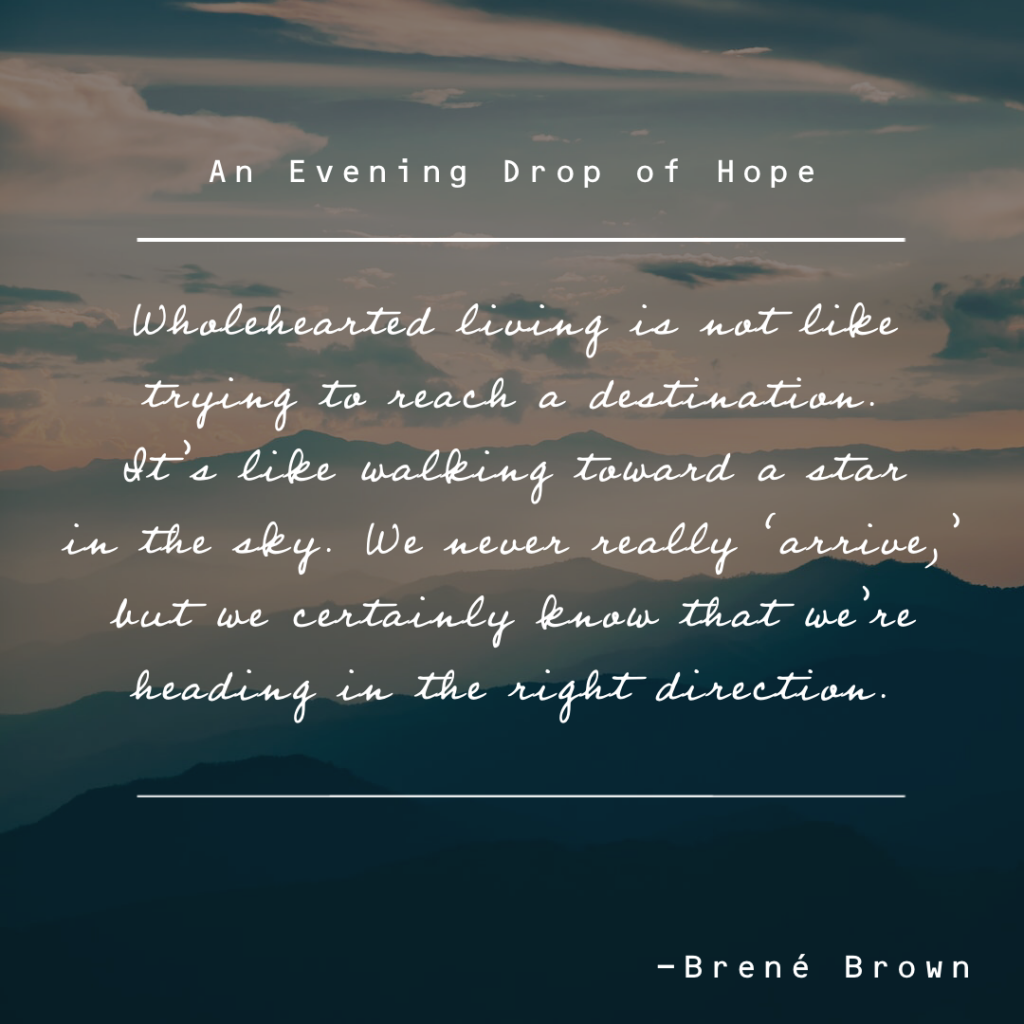 Trust in the Lord with all your heart,
and do not rely on your own insight.
In all your ways acknowledge him,
and he will make straight your paths. Proverbs 3:5-6
Trust in the Lord with all your heart,
and do not rely on your own insight.
In all your ways acknowledge him,
and he will make straight your paths. Proverbs 3:5-6
This weekend, Ryan Howell and the Crossroads team talked about the heart. Ryan did a great job of explaining how the Hebrew imagination understood the heart as having four dimensions: thinking, feeling, choosing and behaving. The biblical writers carried this view of the heart forward through the teachings of Jesus, Paul and others. Fast forward to today, and the Hebrew way of understanding the heart maps perfectly with the research findings of Dr. Brené Brown and the Daring Way™ community. The research shows that people who go through really hard things and grow emotionally, spiritually and relationally are people who are in touch with the various parts of their hearts. Another way of saying this is that emotionally resilient people understand themselves really well. They are able to observe themselves thinking, feeling and acting. And! They take responsibility for choosing their thoughts, feelings and actions. Because of these skills, they trust themselves. And this knowing of self ,and trusting self, also aids us in knowing and trusting God and creating a circle of trust in our important relationships. This may sound a bit too theological, metaphysical and analytical for some. But the good news is that we can cultivate whole-heartedness without much knowledge or interest in the scholarly aspects of this topic. If the wholehearted self is a combination of our thinking, feeling, choosing and doing-selves, we ought to get to know each of these selves! This means spending time and talking with ourselves and God about our thoughts, feelings, choice-making and actions. This is totally doable, and you can start growing today.
Spiritual Practice:
Read Proverbs 3:1-8. Sit silently, breath, relax… When you’re feeling centered and present with yourself and your physical surroundings, try the following exercise. Identify an uncomfortable emotion or experience you’ve had in the past few days, and write, pray or talk about the following prompts:- I’m physically feeling _____________. Ask: How is my body responding? Where am I physically feeling this? (Common bodily responses include: accelerated pulse, dry mouth, tight throat, discomfort in your head or stomach…)
- I’m thinking ________________. Ask: Is there a thought constantly looping in my mind? What’s my go-to thought process?
- I do / I act ___________________. Ask: What’s the first thing I want to do? What’s the only thing I want to do?
You can find this post and posts like this on Katie’s blog: katiemartinezawake.com.

